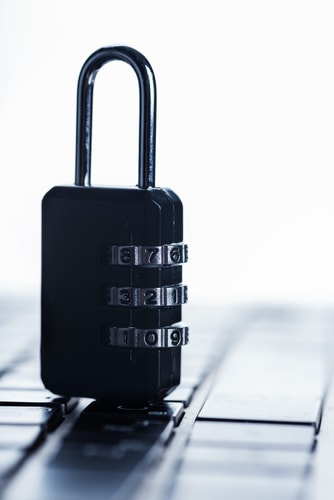Recent Updates to Saudi Arabia’s Essential Cybersecurity Controls
 Cybersecurity constitutes a most basic aspect of national security and economic prosperity, as nations are in a hurry to transform digitally. Saudi Arabia continues to remain fully committed to the safeguarding of its digital infrastructure with its continued Vision 2030. The National Cybersecurity Authority (NCA) created the Essential Cybersecurity Controls, which have become a crucial framework for protecting the Kingdom's government and associated organizations from the evolving cyber threat landscape. In 2024, Saudi Arabia issued updates to the ECC, marking the country's flexible approach toward modern cybersecurity challenges.
Cybersecurity constitutes a most basic aspect of national security and economic prosperity, as nations are in a hurry to transform digitally. Saudi Arabia continues to remain fully committed to the safeguarding of its digital infrastructure with its continued Vision 2030. The National Cybersecurity Authority (NCA) created the Essential Cybersecurity Controls, which have become a crucial framework for protecting the Kingdom's government and associated organizations from the evolving cyber threat landscape. In 2024, Saudi Arabia issued updates to the ECC, marking the country's flexible approach toward modern cybersecurity challenges.
The latest updates of the Essential Cybersecurity Controls (ECC-2) by the National Cybersecurity Authority of Saudi Arabia prove the country's dedication to protecting its digital infrastructure. Based on the foundation created by ECC-1:2018, these new reforms aim at enhancing governance, building resilience, and aligning the cybersecurity framework to the evolving national cybersecurity strategy in Saudi Arabia through Vision 2030. Reflecting a proactive approach to threats, these new updates are in place to further enhance compliance, localization, and clarity. This article delves into the core updates in ECC-2, their implications, and what an organization needs to do to keep up with the updated framework.
Key Reforms in ECC-2
ECC-2 brings several new changes to reinforce the regulatory framework:
- Revised Scope of Application
- Transfer of Data Localization Responsibilities
- Saudization of Cybersecurity Workforce
- Streamlined and Consolidated Controls
- Enhanced Clarity for Compliance
Each of these updates is described in detail below.
- Scope of Application Changes
i. Extraterritorial Application Clarification
The ECC-2 maintains the general scope of ECC-1, which is applicable to:
- Government entities in Saudi Arabia (ministries, authorities, and affiliated establishments).
- Private sector organizations that own, operate, or host Critical National Infrastructure (CNI).
However, a significant amendment extends the framework explicitly to Saudi governmental entities established abroad, such as consulates, embassies, and fully owned subsidiaries. This reflects Saudi Arabia's growing participation in foreign direct investments (FDIs) and its commitment to protecting digital assets globally.
- Unresolved Ambiguities
Despite this, the threshold of government ownership that would qualify for ECC-2 applicability is still ambiguous. For example, the framework does not clarify whether partial government ownership would invoke compliance obligations. This may result in inconsistent enforcement. Future updates or clarifications from the NCA will be crucial in resolving this ambiguity.
- Data Localization
- Shift in Responsibility
 Significant change in ECC-2 is the elimination of explicit requirements for data hosting within the country. Although this might seem to relax localization, the obligation for data localization controls has been passed on to the National Data Management Office within the Saudi Data and Artificial Intelligence Authority (SDAIA).
Significant change in ECC-2 is the elimination of explicit requirements for data hosting within the country. Although this might seem to relax localization, the obligation for data localization controls has been passed on to the National Data Management Office within the Saudi Data and Artificial Intelligence Authority (SDAIA).
- Sector-Specific Requirements Continue
Entities dealing with government information will have to look up from other frameworks, include:
- ICT Regulations (2019)
Host government data on servers within Saudi Arabia.
- Sector-Specific Rules
Finance and telecom, for example, might require localization based on criticality.
This is a decentralized approach, which makes it imperative that organizations are on their toes to keep track of overlapping regulations.
- Expected NDMO Guidelines
The NDMO will issue updated regulations regarding hosting and storing data. Organizations must follow these developments to maintain their compliance with the localization of data.
- Saudization of Cybersecurity Workforce
- Expanded Mandates
ECC-1 mandated that only the most senior cybersecurity positions, including Chief Information Security Officers (CISOs), be held by Saudi nationals. ECC-2 expands this mandate to require all cybersecurity positions to be held by full-time, qualified Saudi professionals.
- Nationalization Goals
This aligns with Saudi Arabia’s Vision 2030 initiative to enhance local employment and reduce reliance on foreign talent. However, this presents challenges in sourcing enough qualified professionals to meet demand.
- Building Local Talent
Organizations must invest in local talent development through:
- Partnerships with educational institutions.
- Cybersecurity training and certification programs.
- Internship and mentorship initiatives.
These efforts will ensure a sustainable pipeline of skilled professionals while aligning with compliance mandates.
- Controls Simplification
- Decrease in Controls
ECC-2 decreases controls from 114 to 108. This simplification is made to:
- Reduce complexity
- Remove redundancy
- Target priority areas
- Sector Consolidation
Controls that overlap with other regulatory regimes have been consolidated, referencing organizations to relevant NCA standards for further reference. This means fewer compliance headaches and a more targeted approach to cybersecurity governance.
- Greater Clarity in Compliance
- Terminology Clarification
The ECC-2 provides greater clarity in its definitions and language to enhance comprehension. This reduces uncertainty and allows more efficient use of the framework.
- Conformity to International Standards
The updates have conformed with international best practice, such as the NIST Cybersecurity Framework. This would add credibility, ensuring that it is relevant within a global digital economy.
- Essential Steps Towards Compliance
Organizations falling within the ECC-2 scope must take proactive steps to align their operations with the updated framework. Here are the recommended actions:
-
Conduct a Gap Analysis
- Evaluate current practices against ECC-2 requirements.
- Identify and prioritize high-risk vulnerabilities.
-
Revise Cybersecurity Policies
- Update governance structures to meet ECC-2 standards.
- Strengthen policies for third-party security and incident response.
-
Build a Saudi Workforce
- Use recruitment plans targeting Saudi nationals.
- Have in-house training programs to enhance the skills of employees.
-
Keep an Eye on Regulatory Changes
- Monitor NDMO guidelines and sector-specific information.
- Periodically check the cybersecurity practices to ensure continued compliance.
-
Invest in Resilience
- Strengthen defenses against threats such as DDoS attacks.
- Implement MFA and other controls.
ECC-2 Implications
The new framework has profound implications for government and private sector organizations alike:
- Enhanced Governance
ECC-2 emphasizes accountability, where cybersecurity responsibilities are well defined and managed.
- Enhanced Operational Efficiency
Streamlined controls reduce complexity, allowing organizations to focus resources on critical security measures.
- Talent Development
Mandatory Saudization fosters the growth of local expertise, contributing to a stronger national cybersecurity ecosystem.
- Alignment with Vision 2030
By addressing modern challenges, ECC-2 supports the ambition of Saudi Arabia to become a global leader in cybersecurity.
 Conclusion
Conclusion
ECC-2 marks a significant milestone in Saudi Arabia's cybersecurity journey. Refining its scope, consolidating controls, and developing local talent form a robust foundation for safeguarding digital assets in an increasingly interconnected world.
However, successful implementation will require the concerted effort of all stakeholders. Organizations must take a proactive approach, seeing the updates as an opportunity to enhance resilience, compliance, and competitiveness. With the ever-changing nature of cyber threats, the ECC-2 guarantees that Saudi Arabia is at the pinnacle of cybersecurity excellence, securing its digital future and supporting its broader economic and strategic objectives.
 English
English
 عربي
عربي Русский
Русский 官话
官话 português
português
 Türk
Türk 












